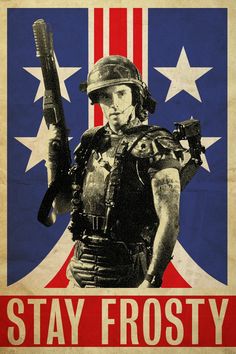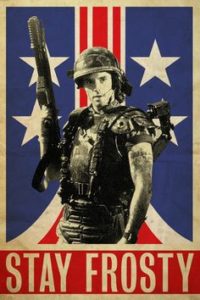
09 Nov Monday Blog – Short, Controlled Bursts
We’re about in the middle of NaNoWriMo and I bet a lot of your feeds are full of posts like this – “12,000 words, a good start” or “didn’t meet my goal today! ARRRRGH!” While I am a huge fan of anything that pushes writers to write there are a few things that bug me about the exercise. I think very few writers object to the “fix it in post” mentality, which is to say, get the story down and then fix the problems once you have something to work with. It’s how almost every writer out there works. If you edit while you go, there’s a good chance you’ll never finish so getting something down and working on it after the bones are in place is extremely valuable. No doubt.
My problem with NaNoWriMo as an exercise is two-fold. First, with so many success stories out there, the pressure to do this very hard thing is immense and the failure rate, I imagine, is very high. I know some fantastic writers who consistently can’t make the goal. Add to that international word count competitions (like the number of words is somehow indicative of quality or creation of a story anyone would actually want to read) and charts with the number of words you should write a day and suddenly art stops feeling like art and feels more like sport. It’s nonsense.
Second, in my experience, a month is not a reasonable amount of time for someone with a life and a job and possibly a family to crank out a book. The deck is immediately stacked against you and if you finish, great job but you will have to sacrifice and what you be rushed. Follow all the charts you want, that first time the kid is sick or you have to stay at work until after dinner or that meeting runs super long and you’re out of luck and this project which many have used as a springboard to their dream of writing fiction is suddenly out of reach.
I have what I think is a better idea for me and some of the writers I know, though it lacks the catchy name and marketing of NaNoWriMo. It’s also based, in part, on the Colonial Marines from “Aliens.” Here’s what I do.
- Write in short, controlled bursts – When you are a “time starved” person it’s a hard truth that three hours will never magically appear before you so you can get a good chunk or writing done. Time comes in half hour to 45 minute increments. These are scraps of time that could easily be spent doing something else but if you want to write a book, start identifying these chunks of time and using them. Getting your oil changed? Bring the lap top. Can you schedule a trip so you know you’ll arrive an hour early? Do it and knock out some chapters. WRITE OVER YOUR LUNCH HOUR! Again, if you’re busy time is not going to magically appear. You have to carve it out and you have to be consistent about it.
- Stay frosty – When I first started writing fiction I tried staying up late and getting up early. For me, it didn’t work and I’ve heard from others it can lead to middle of the road to poor results. If the early/late thing works for you, bless you and ignore this advice, but if your brain is sometimes shut off at the end of the day like mine is, the late shift isn’t an option. Write when you are alert, awake and ready to tackle that sucker with the mental energy and focus your story deserved.
- Never trust the robot – I know this doesn’t fit because Bishop was the best robot whoever robotted in a robot story and Lance Henricksen is awesome. I’m talking about work count. The industry standard for a novel is 70,000 to 90,000 words and while that’s important when you start don’t let the word count generator dictate your story. Be a slave to the characters and situations and story that you’re telling, not the word count. You can always fix it in post.
I would also recommend if you have two strong points and one weak one not to stretch it out like I just did.


No Comments